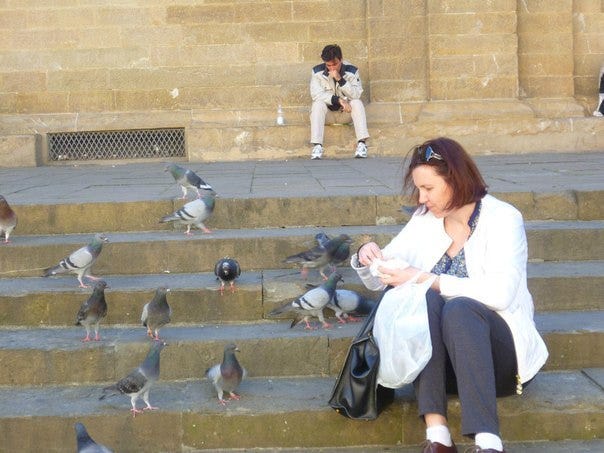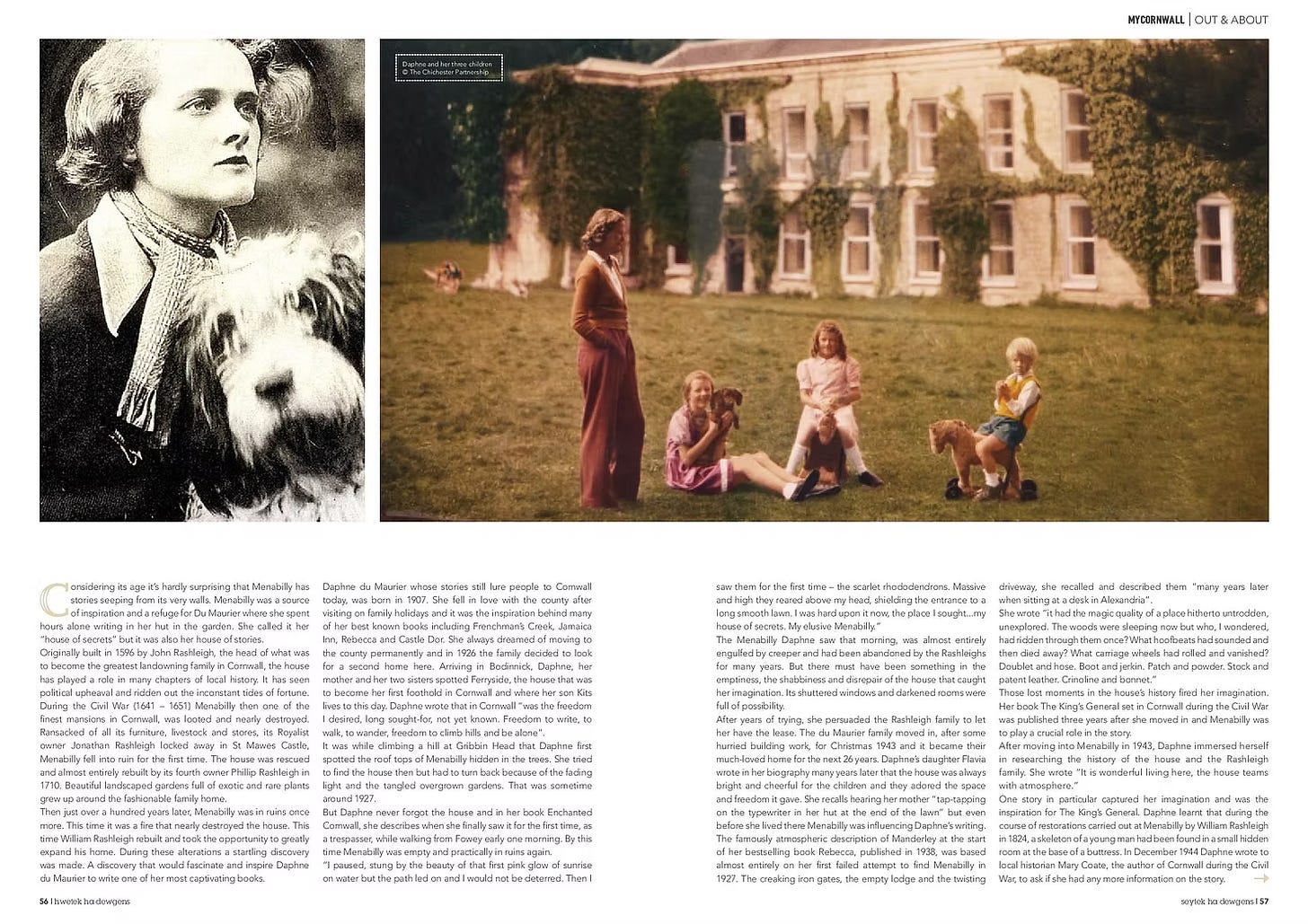On Motherhood, Mothering, and Creative Existence
Will I be able to write something of value now that my time no longer belongs to me even thought I couldn’t do it when my time was entirely my own?
I’ve always known I wanted to have children. I also wanted to create something of value before having children. Now, I’m on the verge of the first, and still painfully distant from the second by no one’s fault but my own:
Things I wrote never felt meaningful or impactful enough.
I rarely properly finished anything.
I am one of those people who believes that it’s not as hard to achieve the life of your dreams as to know what those dreams are. Results come from focus and I could never quite focus on anything. I always liked and wanted one too many things. I was always chasing ideas more so than executing them. The energy wasn’t entirely wasted, but I sometimes wonder what might have happened if I had spent more time doing rather than simply imagining the doing. Thought without movement has a way of turning in on itself.
Creativity, I believe, is a form of self-care. Once the basic needs are met, we hunger for emotional fulfillment and expression. My basic needs are met, so why do I struggle so much with this next part? It's not a lack of time or tools. It's something more elusive, more interior.
My main fear when I found out I was pregnant was not “will I be able to keep this child alive and happy and thriving?” (Of course, I will) It was:
Will I be able to write something of value now that my time no longer belongs to me even thought I couldn’t do it when my time was entirely my own?
After eight months of gestation and soul-searching, I believe so, with almost delusional intensity. Now there is a layer of urgency to it. I want to write things that my daughter can read — at least one day when she’s older. I want her to be proud of and inspired by me. I don’t think a child will take away from my creative existence, quite the opposite. I am better at taking care of others than of myself. I am better at doing things with little time. I am a brilliant example of Parkinson’s law in action: work expands to fill the time allotted for its completion. I achieve nothing when I have all the time in the world. My hope is Bean will provide me with little pockets of availability, and I will grab them with urgency and care.
There’s a strange hesitancy in even writing about it. I have other interests, plenty of them. I’m not even a mother yet. What right do I have to speak on something I haven’t fully lived? Also, how special is it really? Not everyone is a mother, of course, or wants to be one. But everyone has a mother, every single one of us came here of a woman, so the experience is not exactly rare. It is, however, might be the most life-changing event in my life. And when it’s you own life that’s changing what do you care that the experience is not unique.
In my mind, I still don’t think much about pragmatic realities of raising a child. I, of course, think of Bean constantly but in a poetic kind of way. What kind of personality will she have? Will she find me funny? Will she love the books I bought her? Will she enjoy baking? Will she be proud of me? I imagine her tiny hands and knees, her little pointy nose, her hair. She has hair! The doctor pointed at it at the last ultrasound appointment, it looked long and spiky, sort of like hedgehog's, and I fell in love with it straight away.
I am probably completely unprepared for the mundanes of actual mothering. I have checked all the items on my to-purchase list. We have a cot; we assembled the stroller (it does not fit into our door!). The hospital bag is filled with diapers and creams, pacifiers and bibs. Tiny hats that will probably never sit still on a newborn’s head. Everything is washed and folded and arranged. But I know this isn’t the real preparation. This is the illusion of readiness, the way you lay out outfits for a job interview even though you haven’t rehearsed what you’ll say when they ask about your weaknesses. (That I am too much of a perfectionist, of course.)
What I haven’t prepared for is the moment the baby won’t stop crying and nothing works. Or the aching confusion of conflicting advice. The sleep deprivation that turns your thoughts to static. The thousand tiny decisions you have to make each day and wonder if any of them were right. My brain understands the inevitability of it, but my soul just doesn’t accept it. When I think of motherhood or mothering,1 for that matter, I don’t think about those things at all. When I think of motherhood, I think of myself as a creative being who happens to be a mother. I think of my own wtchy mother. I think of Sofia Coppola on set of “Somewhere” holding her daughter. I think of Daphne du Maurier with her children in front of Minabilly. I imagine typing one-handed, while rocking a sleeping baby. Maybe I’ll scribble sentences in the notes app while pushing a stroller. Maybe I’ll record voice memos while I breastfeed in the early morning, right before sunrise. I imagine writing and painting and cooking, just with Bean by my side—part of the process.
I read countless books on pregnancy and parenting, listened to endless podcasts, and watched plenty of birth videos. But what truly captivated me wasn’t the biological process of pregnancy or the practicalities of raising a child, it was the internal transformation, the emotional and psychological journey of becoming a mother. I didn’t particularly care for What to Expect When You Are Expecting, but was deeply moved by Motherhood by Sheila Heti or A Life’s Work. Cusk received harsh criticism for her honesty, yet I found the rawness of her frustration not only valid but necessary. It may not mirror my own experiences or doubts (yet who knows, I haven’t lived them yet), but I value understanding what’s possible. There’s comfort in recognizing that any pain or frustration I feel or might feel isn’t isolated. It’s part of a shared human experience.
Motherhood is often imagined as a singular, monolithic ordeal. It’s timeless, universal, and biologically determined. There is generally a certain fear of losing yourself in motherhood and almost shame in making motherhood a part of your identity (is that why I am hesitant writing about it?).
put it beautifully: “As a first-time mom, my desire to be cool became a desire to not be disappeared by the identity of Mother.” A few months ago, I wrote about wanting to be a cool mom, which, I realised meant I wanted to be a rich mom. I am however not particularly afraid to lose myself in motherhood (even thought I am slightly ashamed writing about it — I know, I sort of contradict myself here) because:I was raised in Russia by an amazing mother (and father) who did not even entertain those ideas and who had, I suppose, a village big enough to not have to worry about them.
I am beyond lucky to generally have confidence of a hundred year old man who ran out of fucks to give in 1965.
I do not believe motherhood erases the self. But I do think it remakes it. The elements are reordered and revalued, but they remain.
If I think about it, I have never felt myself not myself, if that makes sense. I am not entirely sure what losing oneself even means.
Perhaps, life will slap me on the face and show me. Perhaps not.
Even so, writing about all of those experiences is important. Yes, part of me wanting a child came from a biological urge, but reading on the subject gave a complete surety, and I have read everything I could get my hands on. In a literary canon historically centered on male perspectives, motherhood, like other experiences traditionally associated with women, has often been pushed to the periphery or rendered completely invisible. Now that it has emerged as a subject worthy of direct literary attention, we finally have something to relate (or not) to. The maternal experience, like any other deeply human experience, is worthy of art and language, no matter what exactly that experience entails.
And yet, for all its significance, mothering remains under-articulated. The cultural conversation often lags behind the complexity of the lived experience. Mothering is often perceived as private work, but it is deeply political. Who gets to mother with safety, support, and dignity—and who does not—is shaped largely by structures of power. Access to healthcare, parental leave, affordable childcare, even the right to rest without guilt, are not distributed equally. Some mothers are applauded for sacrificing everything, while others are shamed for not doing enough. The myth of the selfless, tireless mother is not only unrealistic but weaponized and, frankly, ridiculous.
To write about mothering, then, is not indulgent but almost revolutionary. Gestation happens in many forms. Some stories take nine months. Others take years. Both are important.
Recs
I was deeply moved by a recent interview with
on motherhood and creativity. It’s a beautiful inspiring conversation. “My entire career has been sort of leading up to this notion of how to have a child and a creative existence even before I knew if I wanted to have a child or not.”From Woman, Interrupted: Woman, Interrupted: Alice Vincent on Motherhood and Creativity, 5. 6. 2025
Woman, interrupted podcast by
is exceptional in general. Oh how I wish there were more episodes.Motherhood by Sheila Heti
A Life’s Work by Rachel Cusk
The part of motherhood I didn't expect by
Andrea O’Reilly wrote: “The term “motherhood” refers to the patriarchal institution of motherhood that is male-defined and controlled and is deeply oppressive to women, while the word “mothering” refers to women’s experiences of mothering that are female-defined and centered and potentially empowering to women.” - I like the separation but am yet to fully integrate it in my language.






